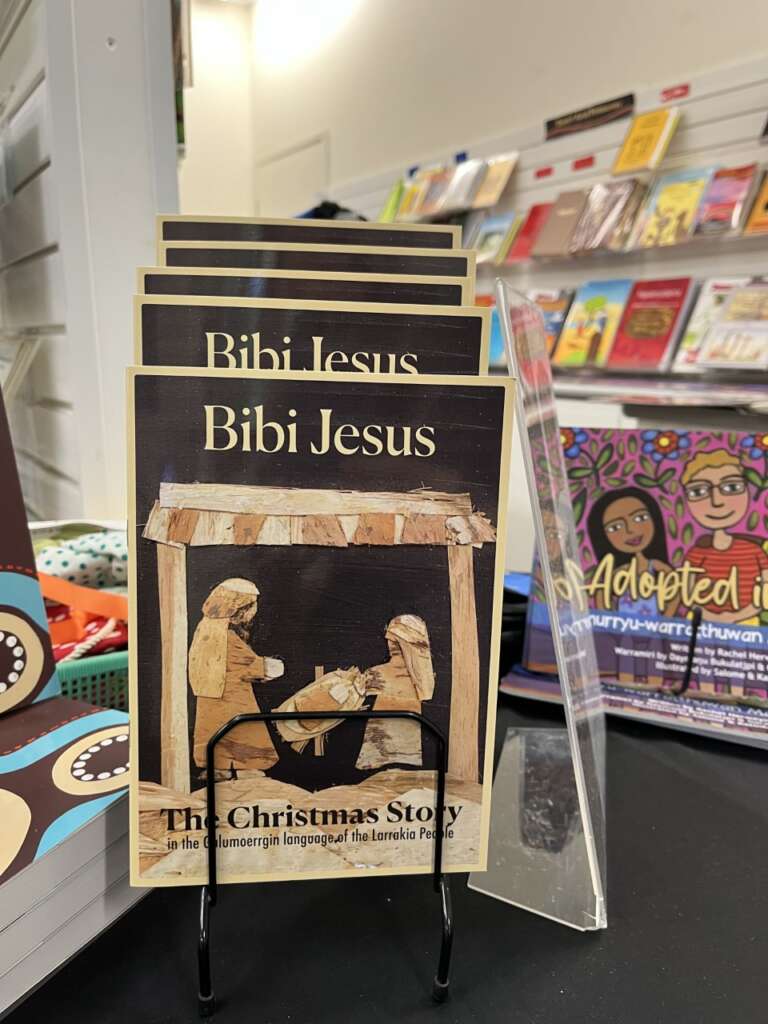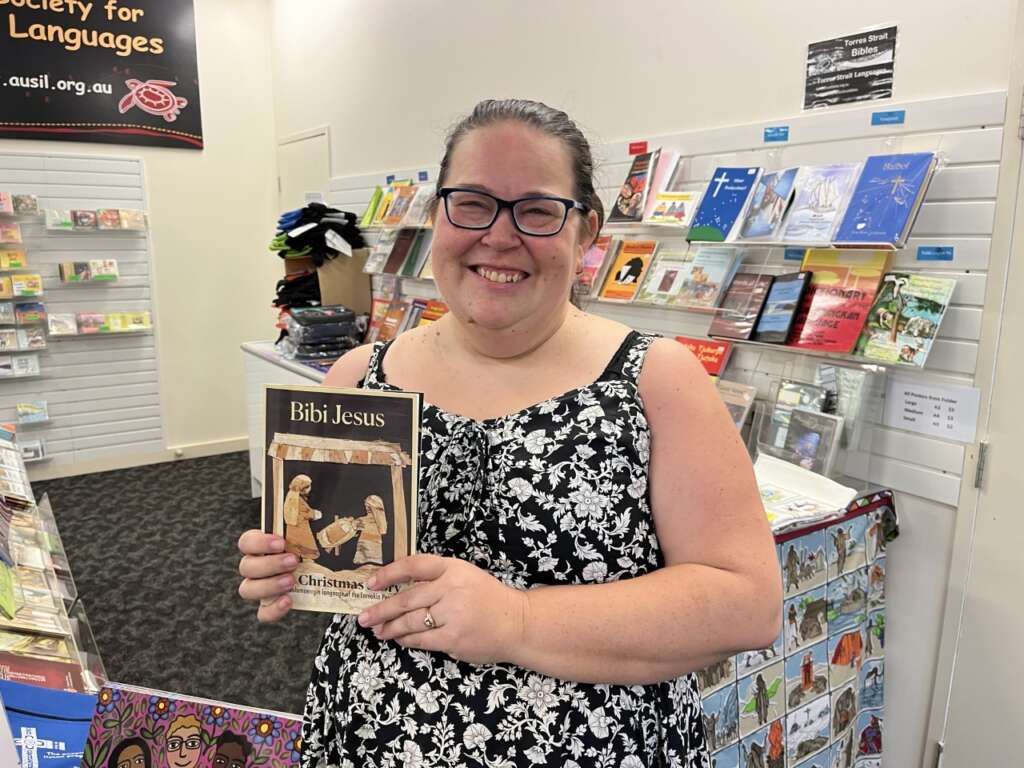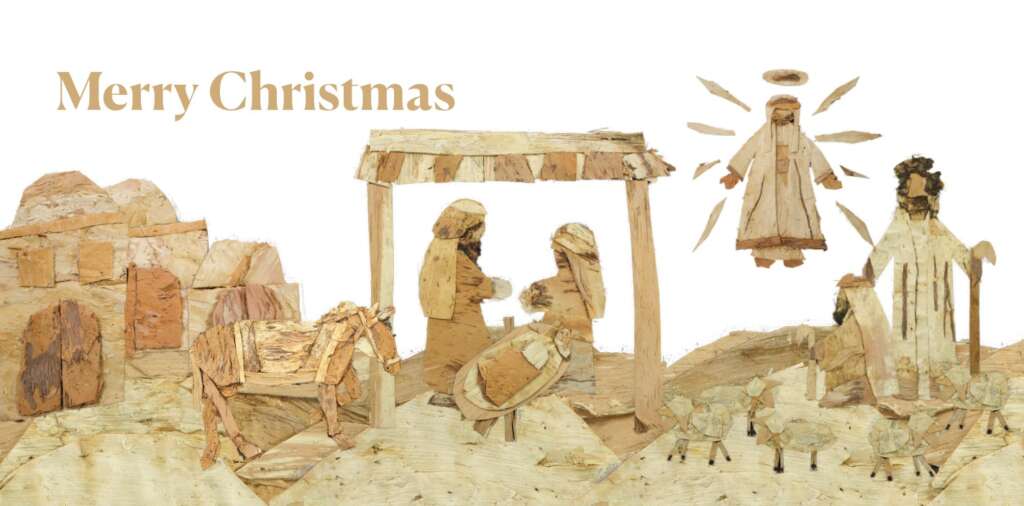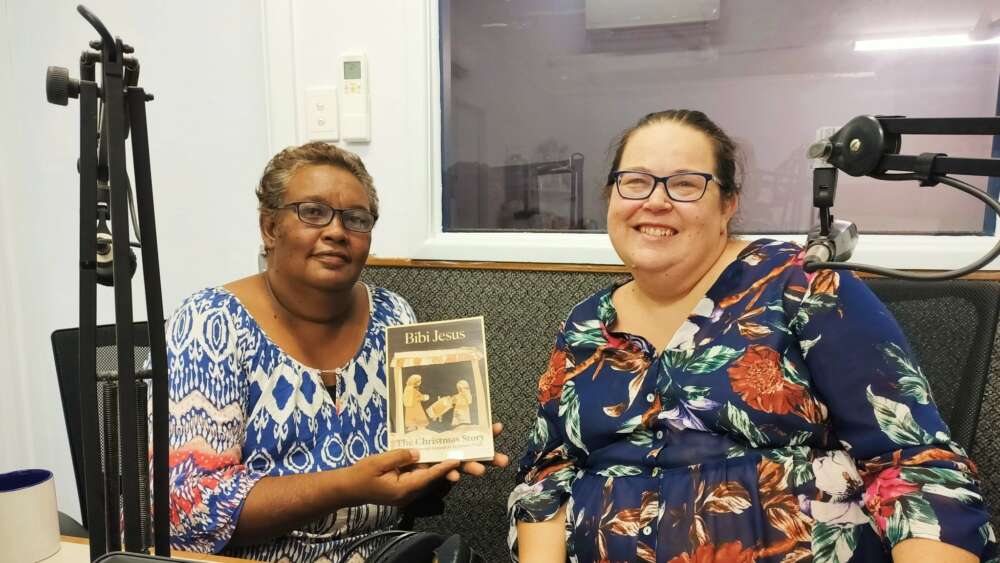“Maan batjji gurrunggurra ankiyak maan batjji binyolkkirra ankiyak.”
“I’ve got really good news for you, and good news for everyone in the world, too.” (Luke 2:11)
Lorraine Williams was dubious at first when she was asked to translate the story of Jesus’ birth from Luke’s Gospel into the Larrakia language of the Darwin region, which is considered a sleeping language with no officially recorded speakers and declining numbers since the 1950s.
“I said ‘I’ll have to think about it’ because we don’t have our language in full,” she relates.
“My father spoke it fluently but he passed away when I was five, in 1976, and my mum took us to live with her people in Arnhem Land, so I was disconnected from the old people who spoke that language.”
But the Larrakia woman has a passion for working on Aboriginal languages and a keen interest in all things Larrakia, having worked on Larrakia ethnobiology with the view to recording Larrakia names for land, plants, and animals.
“I was disconnected from the old people who spoke that language.” – Lorraine Williams
So she decided to see what she could do. Over a few months of discussion with several elders and listening to Larrakia Bible stories by Global Recordings Network, Lorraine gradually learned how to read and write the language spoken by the traditional landowners in and around the city of Darwin, which is called Gulumoerrgin.

The result is the first-ever Scripture published in Gulumoerrgin/Larrakia, a handsome children’s book called Bibi Jesus, the Christmas story from Luke 2:6-12, published by the Australian Society for Indigenous Languages (AuSIL).
The book contains the story in Gulumoerrgin and English and features illustrations Lorraine created out of paperbark, a traditional material for building and bedding, and especially wrapping babies because it is so soft. The story has also been made into an animated video narrated by Lorraine.
The project was the brainchild of AuSIL’s Melody Kube, who first approached Lorraine when she came into the AuSIL shop in Darwin to do some Christmas shopping.
She invited Lorraine to join a language translation workshop she had arranged for first-time translators from Indigenous communities across the Top End working in languages with very little or no Scripture.
“Melody invited me to come and look at one of the workshop sessions and there were people from all over. One lot was fluent in their language but didn’t know how to understand the English and for another lot, their literacy wasn’t too good. I can understand everything but I don’t have my full language, so what I had to do was have a go and have a think about how to interpret every word [as explained to her by Melody],” she says.
Melody adds: “Lorraine had to find the language deep inside of her. She heard it spoken up until her father died when she was little and she had aunties and siblings who could speak aspects of the language, so it was deep inside of her.”
The Plain English Version of the Bible, an English translation that follows the grammar and discourse rules of Indigenous language, helped tremendously because it rearranges the words in ways that are easier to translate into original languages.
“My colleague Susanna Baldwin and I worked with her earlier in the year to do the translation. She had old photocopies from the 50s and 60s of books from archives, word lists, and such. There’s no dictionary, but there are a few word lists around to help her to find words that she remembered.”
“When doing Bible translation work, you have to think about how you can get it wrong before you get it right.” – Lorraine Williams
Being the youngest in her family Lorraine, 51, consulted her older sisters about what words she could use in place of the English and whether her choice could be misinterpreted.
“When doing Bible translation work, you have to think about how you can get it wrong before you get it right,” she says.
In the end, Lorraine kept the English words for angel, saviour, God and Jesus and used Kriol and Larrakia words to devise a term for a manger. Sometimes she had to be a bit creative because of the lack of words.

Melody Kube with the new Bibi Jesus book.
The team received significant help and encouragement from Dr Mark Harvey of the University of Newcastle, who is compiling a Larrakia dictionary.
“It was fun doing it, and it’s a beautiful message behind it,” says Lorraine. “I’m happy that the Christmas story is the first translation of Bible verses. It’s a beautiful story to start with because it is only through Christ that you can be saved and go to heaven. It’s a very simple story, and it has been said at funerals recently because it’s not only about the birth of Christ but about his death and resurrection.”
Lorraine’s illustrations were inspired by landscapes of the outback she used to see at local markets when she was a child.
“This is the first time I ever tried something like that; it’s pretty rough and nothing like what I saw in the past, but I’m happy with the end product.”
The book has been extremely well received by the Larrakia Aboriginal Corporation, which bought 50 copies.
“They are happy to hear their language,” says Lorraine.
“The languages that were ticked as unviable all over the place are now getting the attention they’ve always deserved.” – Melody Kube
The book is bilingual because the assumption is that all speakers of the Larrakia language are language learners, even Lorraine.
“I’m really good at reading it, but speaking, it needs a lot more before becoming fluent and the linguist hasn’t set the orthography yet.”

Melody is thrilled to see baby steps taken to revive a language ticked as unviable and ignored at the official level until recently.
“The languages that were ticked as unviable all over the place are now getting the attention they’ve always deserved,” she says.
“It’s a tough call to try to be strategic. Who do we translate the Bible for? Those who are many or those who are few?
“But every language is included in Revelation, and I think that it’s whatever we can do. The fact is we don’t have the resources to do a whole Bible. The amount of work that went into these six verses puts that in the almost impossible category. But I don’t think that matters. I think what matters is that we do what we can.
“And it’s very appropriate that we talk about the arrival of the word of God at Christmas because Jesus is the Word made flesh. He came here, he’s the Word among us – God with us – and this is the Bible, the Word of God being born among the people.”
Email: [email protected] for further details.
Email This Story
Why not send this to a friend?


